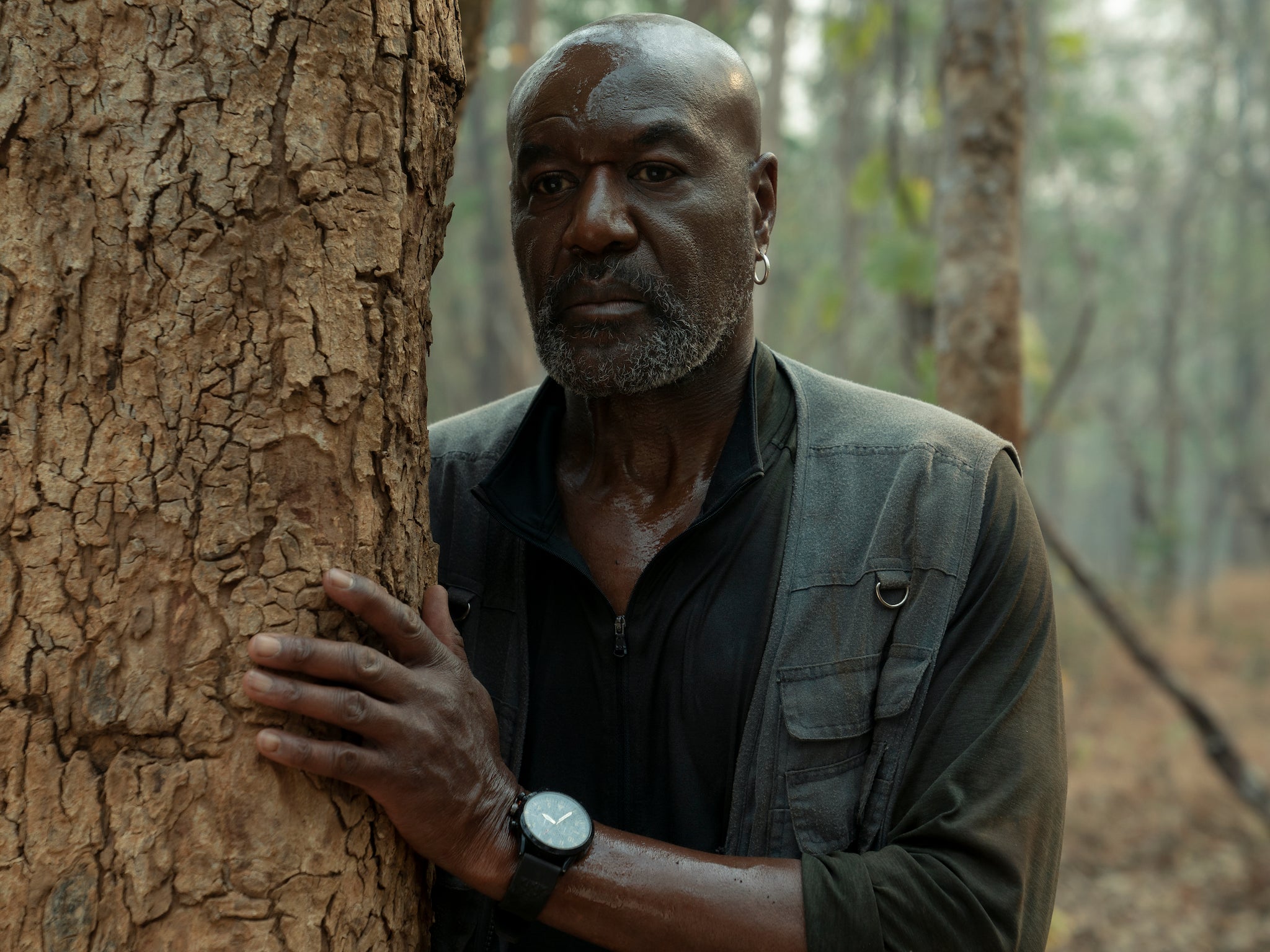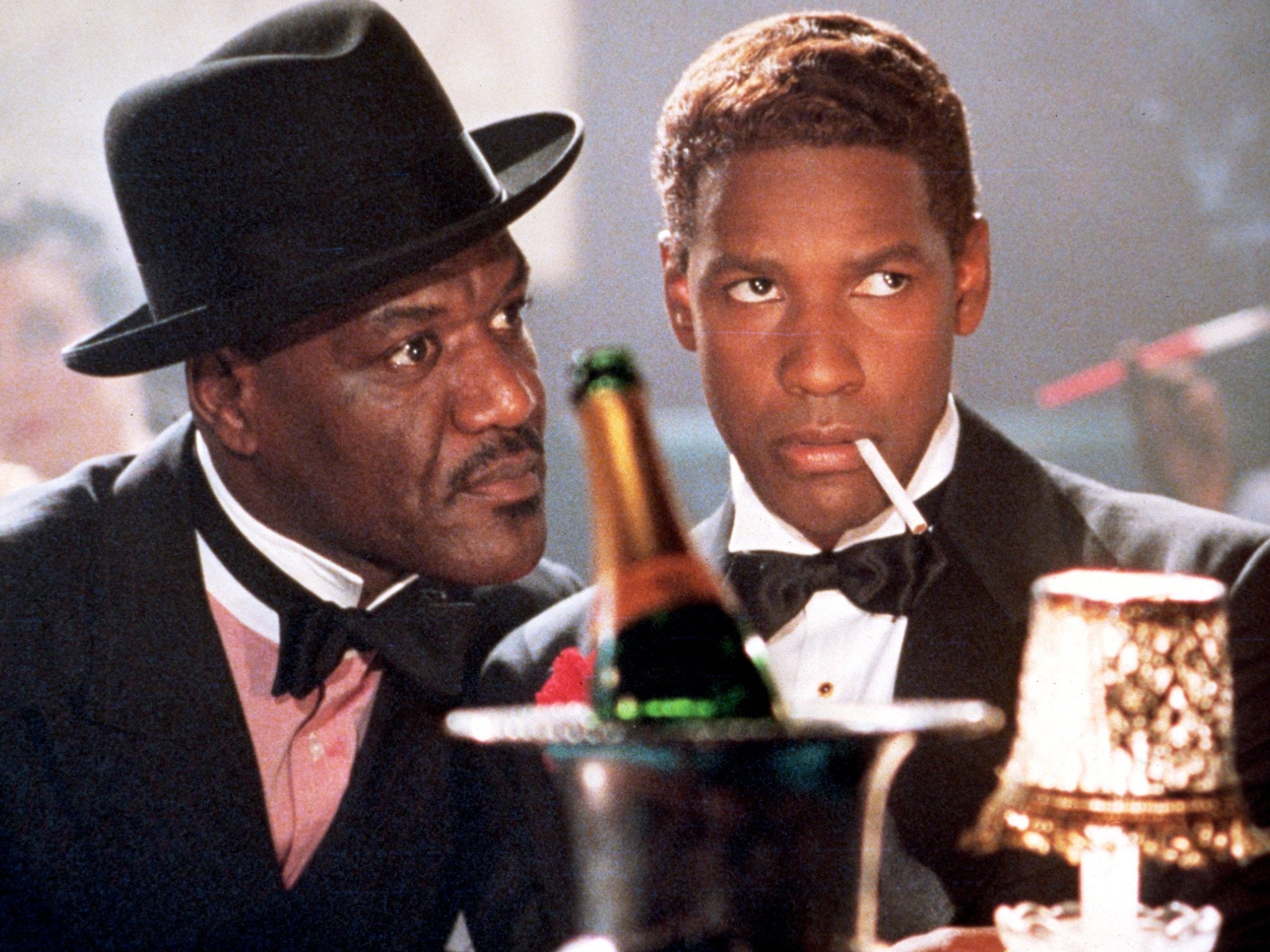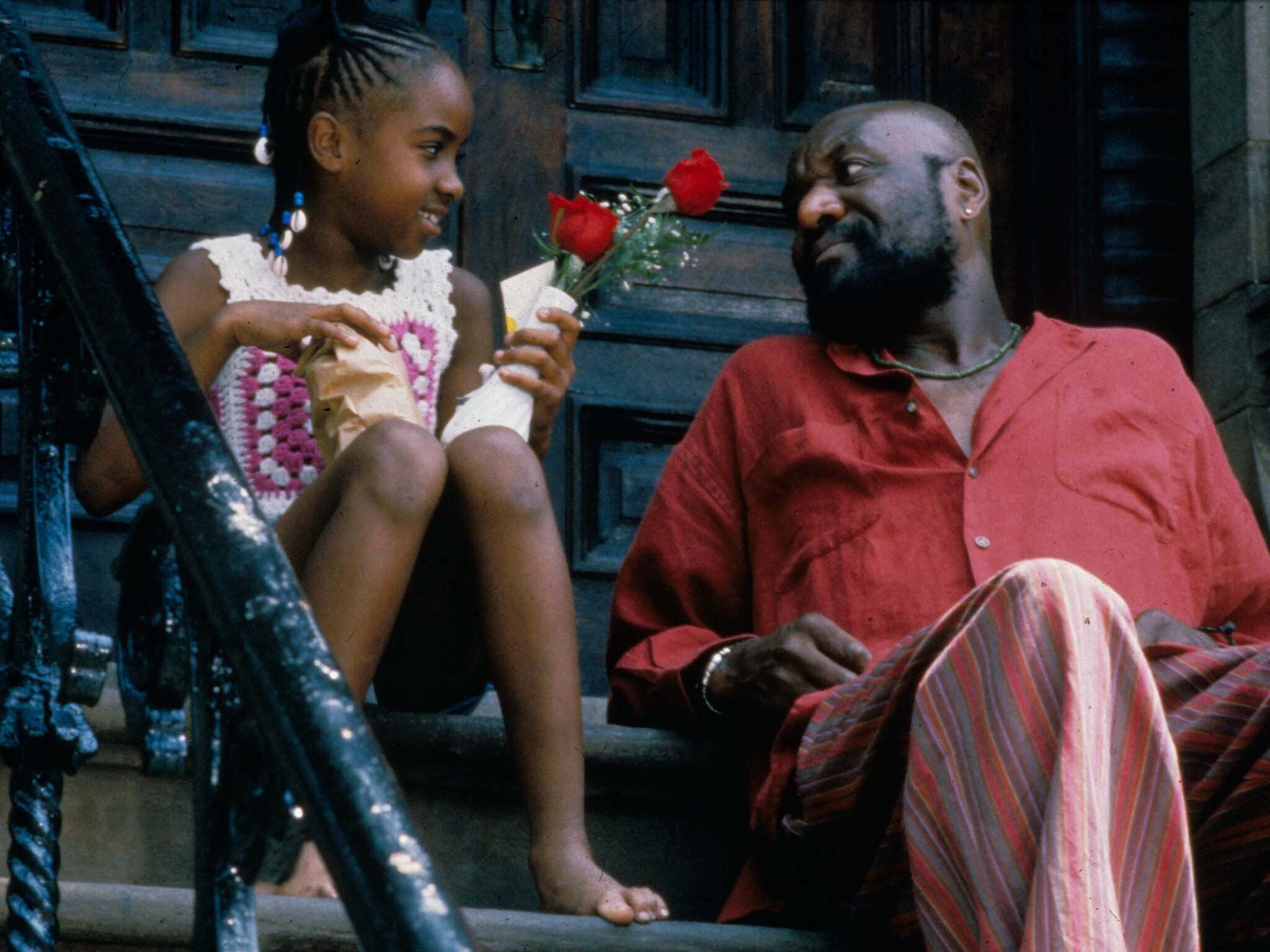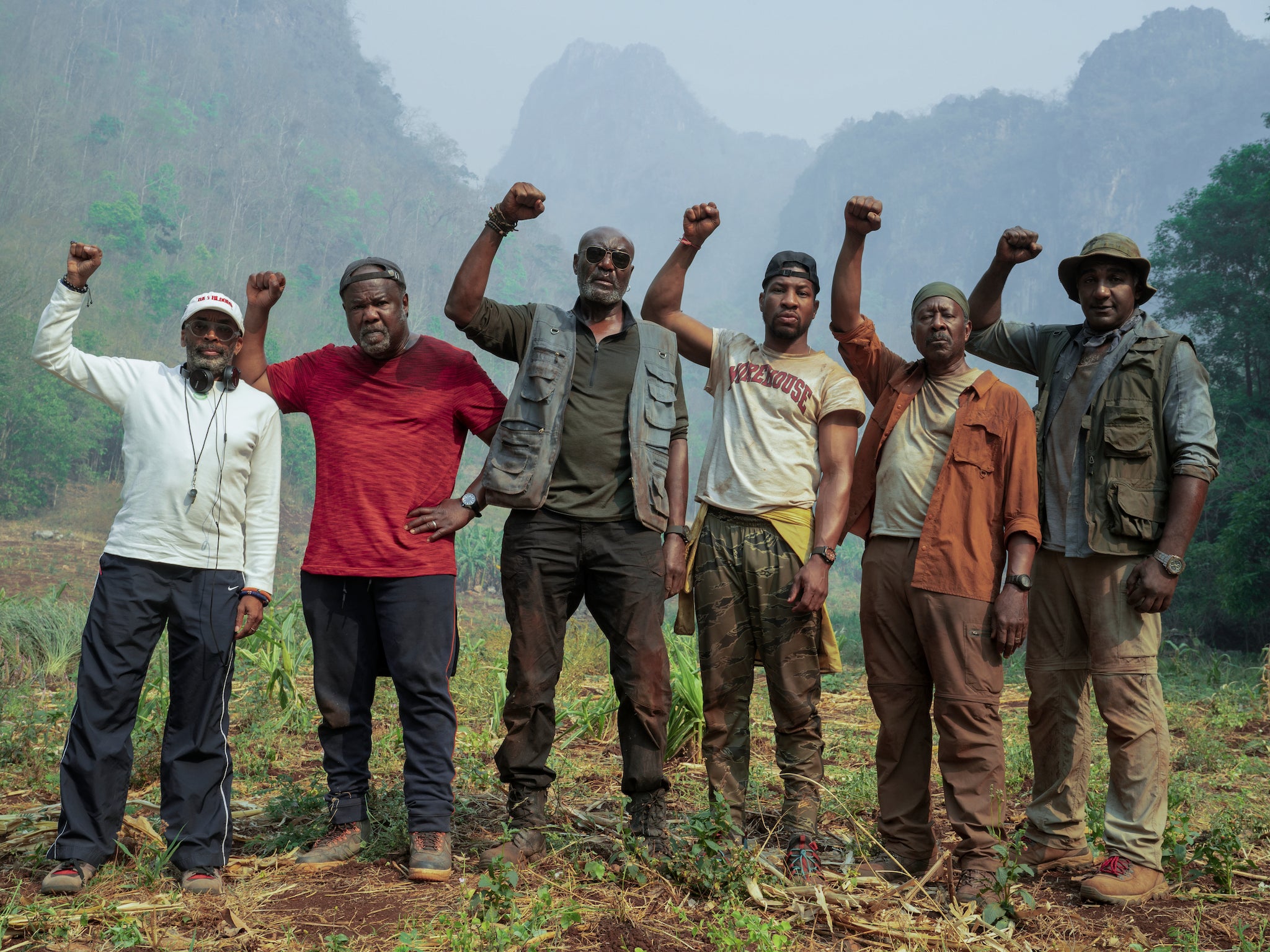The Independent's journalism is supported by our readers. When you purchase through links on our site, we may earn commission.
Delroy Lindo: ‘The British empire informs how racism manifests in the UK’
The Oscar-tipped star of Da 5 Bloods grew up in south London but left Britain behind as a young boy to make it in Hollywood. He talks to Annabel Nugent about awards snubs, historical correctives and why his Trump-supporting character in Spike Lee’s film represents a vulnerability to ‘being lied to’ that some Black voters had to the former president’s message


Your support helps us to tell the story
From reproductive rights to climate change to Big Tech, The Independent is on the ground when the story is developing. Whether it's investigating the financials of Elon Musk's pro-Trump PAC or producing our latest documentary, 'The A Word', which shines a light on the American women fighting for reproductive rights, we know how important it is to parse out the facts from the messaging.
At such a critical moment in US history, we need reporters on the ground. Your donation allows us to keep sending journalists to speak to both sides of the story.
The Independent is trusted by Americans across the entire political spectrum. And unlike many other quality news outlets, we choose not to lock Americans out of our reporting and analysis with paywalls. We believe quality journalism should be available to everyone, paid for by those who can afford it.
Your support makes all the difference.Delroy Lindo is hopeful. The Lewisham-born actor, who made it big in Hollywood via films such as Get Shorty, Clockers and Malcolm X, is feeling positive about a lot of things. He’s hopeful about the Black Lives Matter movement, the diversity in stories that are being told on screen, the Oscar chatter that hums quietly around his name. It is all caveated, though, with a caution that manifests in his expression as a knitted brow and in his speech as a spattering of qualifiers and addendums. The phrase “only time will tell” regularly crops up in our conversation like a wagging finger.
Lindo possesses the type of towering presence and theatricality that translates even over grainy laptop pixels. He is dialling in over Zoom from New Jersey, where he is staying while filming a few hours away in New York City. It has been almost eight months since the release of his latest film Da 5 Bloods, but it’s only a matter of weeks before Oscar nominees are announced. Spike Lee’s war drama about Black Vietnam veterans was supposed to premiere out of competition at the Cannes Film Festival, then came the pandemic and Da 5 Bloods was fast-tracked to Netflix. Reviews were rapturous and singled out Lindo as a highlight in a movie full of them.
“Os-car,” articulates the 68-year-old, who is bald with a beard and is wearing the same single silver earring that he dons in the film. His character in Da 5 Bloods, Paul, is gruff and loud; he’s often seen railing against immigrants or wielding a weapon. Lindo himself is more affable. “I would say that various reality checks I have received in the last few weeks or so have only enhanced my desire to remain circumspect about awards.” Those reality checks, he clarifies, were awards that everyone said he was certain to be nominated for, only for him to be shut out entirely when the time came. “Wink, wink, nod, nod,” he laughs, not naming names but likely referring to recent snubs. Over the past three weeks, Lindo has been passed over for both a Golden Globe and a Screen Actors Guild nomination – although he remains good-humoured about these successive blows.
Lindo knows that his talent has won out over the long term. Over his 45-year career, he has built a sprawling oeuvre that traverses stage, television, and film. In 1988, he earned a Tony nomination for his performance as the tormented former slave Herald Loomis opposite Angela Bassett in August Wilson’s Joe Turner’s Come and Gone. Last year Lindo announced his exit from the criminally underrated CBS legal series The Good Fight, which airs on Channel 4 in the UK. While Lindo has featured in a string of recognisable features (The Cider House Rules, Ransom, Gone in 60 Seconds, Heist, Glory & Honour), the most notable are his collaborations with Lee. Da 5 Bloods is his fourth turn with the Oscar-winning filmmaker, having shone as West Indian Archie in Malcolm X and played the director’s real-life father in his semi-autobiographical film Crooklyn. In Clockers, Lindo starred as drug boss Rodney Little. But it is in this latest venture together that Lee gives Lindo the trust to deliver a career-high performance.
Rather than dwell on missed nominations, Lindo looks instead at the public response to the film and his contribution to the portrayal of a reality that’s been, as he puts it, “expurgated” from American history. “I’ve begun referring to the film as a historical corrective…” he stops and circles back, as he does frequently throughout our call, to correct his grammar – “an historical corrective.” He chooses words carefully and enunciates his syllables as if it were a pre-show vocal exercise. He can be “very long-winded”, he confesses – almost literally, in fact; his voice produces a pleasant whooshing sound on certain consonants.

Da 5 Bloods follows Vietnam War veterans Paul (Lindo), Eddie (Norm Lewis), Otis (Clarke Peters) and Melvin (Isiah Whitlock Jr). As senior citizens, the friends regroup in Ho Chi Minh City to recover the body of their fallen squad leader Stormin’ Norman (played with a saintly reverence by Chadwick Boseman) and the cache of gold bricks interred with him. True to Lee’s style, what on the surface is an action-packed caper is also an excavation of the trauma experienced by Black servicemen and the connection it bears to racial injustice today.
Lindo knows that this type of film – “one that has African American vets at the forefront of the narrative” – is rare. Hollywood loves a war story, but Black soldiers are routinely omitted from depictions of wartime or its enduring effects; Lindo was stunned to find some viewers hadn’t picked up on how unusual it was to see onscreen. “I suppose, unless you are part of the group whose stories are being gradually, subtly, insidiously erased, unless you are on the receiving end of that, perhaps you don’t notice as much the inaccuracies of these accepted historical narratives.” Growing up Black in south London in the 1950s, though, Lindo could not have failed to take notice. At 13, he left for Canada with his mother, a nurse, before moving to San Francisco, where he studied at the American Conservatory Theatre.
If there is any lingering evidence of the actor’s birthplace, the odd pronunciation or slight twang, I fail to pick up on it. Signs of Britishness appear to have been sandblasted by decades of living in Canada and the US. What he does carry from his time here is a love of Manchester United – and also memories of encountering racism as a young boy. Reflecting on them now, Lindo says that he has realised, “British racism compared to American racism is equally as virulent. The systems that are in place are different on some level, but the end results are very similar.”

“There is a much more entrenched class system in the United Kingdom,” he adds. Seeing me nod furiously in agreement, he laughs and clarifies, “We have a class system in America too, trust me.” Although Lindo professes not to be a student of history, the actor seems drawn to it in every iteration. “I assume the existence of the British empire, the fact that the British had these globally established relationships with people of colour, informs and is foundational to the relationships that have evolved when those people of colour now come to the UK. And it certainly informs, I believe, how the racism manifests.”

Watch Apple TV+ free for 7 days
New subscribers only. £8.99/mo. after free trial. Plan auto-renews until cancelled

Watch Apple TV+ free for 7 days
New subscribers only. £8.99/mo. after free trial. Plan auto-renews until cancelled
Like a pill hidden in a brownie, Da 5 Bloods serves up a history lesson packaged as entertainment. Lee weaves in clips of activists Angela Davis and Kwame Ture, alongside paintings of Crispus Attucks, the Black soldier who is generally regarded as the first fatality in the American Revolution. Lee features footage of the 1968 riots that erupted following Dr Martin Luther King Jr’s assassination. For myself and presumably many others, Da 5 Bloods is a re-education. Lindo can empathise. He sounds dejected recalling how when attending school near Eltham, “there was a complete expurgation, a complete disappearance of any historical references that fed me directly as a Black child”. He rattles off the things he did learn in school: Lord Nelson, Oliver Cromwell, the War of the Roses, all the Henrys. Historical Black figures or the devastating effects of imperialism never came into it. Sixty years later and his syllabus still sounds familiar. Only on Thursday, the UK schools minister Nick Gibb rejected the mandatory introduction of compulsory lessons about the empire and slave trade into the curriculum.
Lindo slips into his Da 5 Bloods role like a glove; the part feels written precisely for him. But after first reading the script, he had some notes. Paul – the film’s emotional linchpin – is a plum role for any actor, but Lindo was hesitant about one thing: he’s a Trump supporter. Lindo requested that Lee think about revising that aspect – after all, only eight per cent of Black voters cast their ballot for the former president in 2016. Lee mulled it over for a few days before concluding that no, Paul had to support Trump. Maga hat and all. So Lindo set about creating a back story for this character, a justification for what many see as a walking paradox. It includes, he says, a series of societal and personal “one-two punches” that leave Paul vulnerable to empty promises. “He is vulnerable to this individual who comes along in 2015 and figuratively says, ‘I can take care of you. I can change your reality. I can make things better.’” Lindo laughs in the way a person does when something is not funny but tragic. “He is vulnerable to being lied to. To being massively lied to and needing to believe that lie.”
Does he believe those same reasons apply to the eight per cent of Black voters who chose Trump five years ago? Lindo offers a tentative yes. “I would say so, because of the vulnerability born of feeling disenfranchised, the vulnerability born of feeling left out,” he says, adding, “It is important to make the distinction that I would like to believe exists between people of colour who voted for that individual, who had one set of vulnerabilities and hurt and disenfranchisement, and the other individuals who voted for him. I think it’s a completely different set of dynamics.”
As accomplished as the ensemble cast is, Da 5 Bloods belongs to Lindo. In his hands, Paul – who calls Vietnamese people by racist names and rants about immigrants stealing jobs – is a figure of sadness more than hatred. While each of the men remains at the mercy of the war’s reverberations, Paul feels its ripples most viscerally. He is a live wire, split at the ends and everything around him is water. Although Lindo studied for the part (he read Bloods: An Oral History of the Vietnam War by Black Veterans for a third time and spoke to numerous vets, including a cousin), his performance feels informed by a profound empathy more than anything else. It is apparent in the way he still speaks about Paul now, almost two years since shooting on the film wrapped; Lindo regularly dips in and out of the first and third person. Speaking about how he is saddened when viewers talk only of his character’s anger, he defends Paul as if he, himself, is the character: “Clearly I’m a volatile individual but I have legitimate reasons for the volatility.”

Watching Lindo deliver his straight-to-camera monologue in the film, slashing through the jungle with a machete as he waxes religious or profane or both, it’s clear that he is an ideal conduit for Lee’s grandiloquent style. The 25-year gap since the pair had last worked together on Clockers, Lindo explains, felt inconsequential. “We seemingly didn’t miss a beat,” he says, adding that Lee’s “trust in me as an actor had not diminished in the slightest and if anything, it had grown”.
Lindo is at ease speaking about politics, so it’s surprising that he clams up when I ask what he thinks of socialism’s growing popularity in the States – something touched upon most potently by Boseman’s character in Da 5 Bloods. “My off the top of my head response is: I shouldn’t touch that question with a barge pole and I don’t think I will,” laughs the actor, as he feigns backing away from the computer screen. Later he tells me that what he will say on the subject is this: “People are about the business of wanting to feed families; having a decent wage for the jobs that they do; not graduating college and being thousands and thousands and thousands of dollars in debt because one has pursued an education for oneself. These pursuits are inherent to the human condition, for God’s sake, which people have been systemically barred from. So, when you mention Alexandria Ocasio-Cortez and Bernie Sanders coming in and saying we want people to have a fair shake. There’s nothing wrong with that,” he smiles so that the top of his wire spectacles meets the bottom arches of his eyebrows.
On 15 March, the Oscar nominees will be announced via live stream. If Lindo’s name is read among them, it will be rightfully deserved. And if it’s not, he will rightfully lead lists of the Academy’s most egregious snubs. Either way, the actor will be OK and content that he has been part of a film that fills a significant gap in history – “partially” at least, he adds with caution.

Join our commenting forum
Join thought-provoking conversations, follow other Independent readers and see their replies
Comments